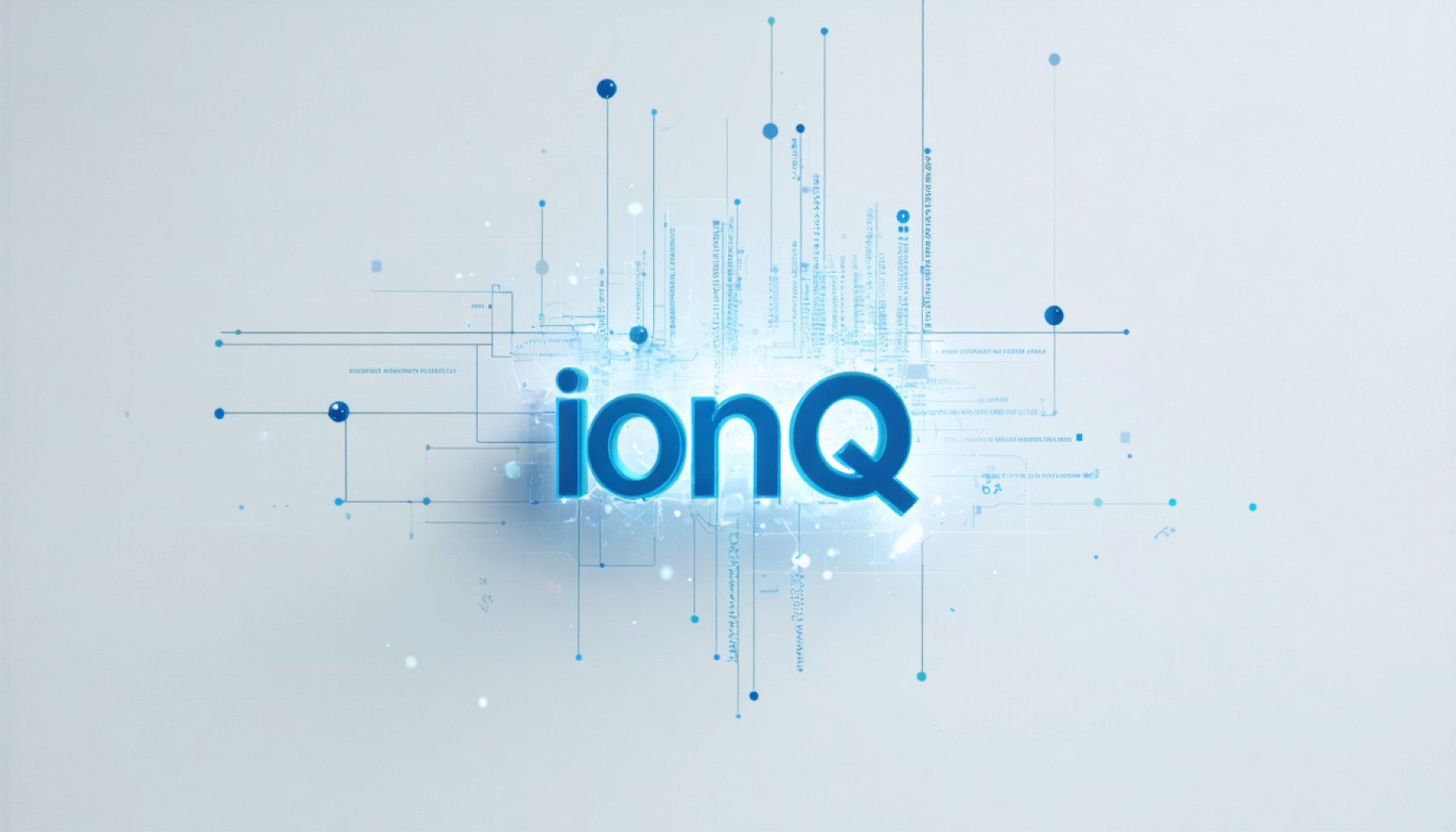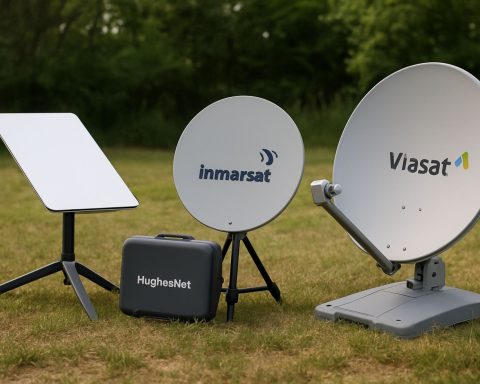- Quantum computing is emerging as a transformative force, with IonQ leading advancements in the field.
- Despite a recent stock decrease, IonQ’s value has tripled over the past year, presenting potential investment opportunities.
- Quantum computers, utilizing qubits and principles like superposition and entanglement, promise vastly superior processing power over traditional computers.
- Potential applications span various sectors, from encryption and drug discovery to logistics and financial modeling, with a projected economic impact of up to $880 billion by 2040.
- IonQ’s strategic partnerships and innovative architecture distinguish it from competitors, coupled with a strong patent portfolio.
- The company faces financial challenges, reporting a $332 million net loss last year, highlighting the risk-reward dilemma for investors.
- With a valuation of around $6.8 billion, IonQ could offer significant returns for those willing to embrace its promising yet uncertain future.
Amidst the dazzling advancements of e-commerce and the sweeping influence of cloud computing, a transformative force emerges on the horizon—quantum computing. At the forefront of this nascent field is IonQ, a company not just riding the quantum wave but shaping it. Although the stock has faced its share of turbulence recently, losing over 30% in market value as the broader market slid, it has still seen a remarkable tripling over the past year. Could this downturn be an investment opportunity in disguise?
Quantum computing, often discussed with a sense of mystique and complexity, taps into the very essence of quantum physics. Unlike traditional computers that deal in binary bits, quantum computers wield qubits, capable of existing in multiple states simultaneously through a phenomenon known as superposition. These qubits can also become entangled, sharing information instantaneously regardless of distance, creating potential for processing power that outstrips classical computers by magnitudes.
Potential applications stretch across sectors—revolutionizing encryption, unlocking breakthroughs in drug discovery, optimizing complex logistics, and even reshaping financial modeling. The possibilities are not merely theoretical. Quantum computers could redefine the very fabric of industries, with projections estimating an economic impact of up to $880 billion by 2040.
For those keeping a watchful eye, IonQ stands out in the crowded quantum race. The company introduced its first quantum computer, Harmony, in 2019, followed by the Aria system in 2021, and recently launched the commercially available Forte in 2023 with plans for their latest model, Tempo, by year’s end. What sets IonQ apart is not just its speed but an architecture that exceeds its competitors’ efficiency, thanks to a scalable error correction process with minimal overhead.
IonQ’s strategic alliances bolster its strengths. Collaborations with industry titans such as SK Telecom, Toyota Tsusho, and Nvidia amplify its reach and capabilities. Its partnership with the U.S. Air Force to secure quantum networks and with General Dynamics for fraud detection further cements its industrial influence. IonQ is actively laying down the quantum rails of tomorrow’s technological landscape, with 176 patents in hand and hundreds more pending, underscoring its commitment to innovation and market dominance.
Investors, however, face a classic dilemma: risk versus reward. IonQ is still charting a course through uncharted waters, reflected in its financials—particularly the $332 million net loss reported last year. Profitability remains distant on the horizon, and with the unpredictable nature of technological development, the path forward is fraught with uncertainty.
Yet, for those with a high tolerance for risk and a vision for the future, IonQ could represent a golden opportunity. As a vanguard in an industry poised to redefine technological limits, its current valuation of approximately $6.8 billion could soar, potentially making today’s investment a prescient one long before quantum computing becomes integral to our daily lives.
In a world that anticipates the next leap forward, IonQ offers not just a glimpse of a quantum-powered future but a stake in creating it.
Why Investing in Quantum Computing Now Could Be a Game-Changer
Expanding the Reach of Quantum Computing
Quantum computing is not only a buzzword but a technological breakthrough poised to revolutionize industries from pharmaceuticals to finance. IonQ, as a leading quantum computing company, is paving the way for this innovation, facing initial market volatility but showing promising growth potential.
Understanding Quantum Computing:
1. Qubits vs. Traditional Bits: Unlike classical bits, which are either 0 or 1, qubits exploit quantum physics to exist in multiple states. This enables quantum computers to perform complex calculations more efficiently than traditional computers.
2. Applications Across Industries: Quantum computing’s impact could be profound, potentially transforming fields such as:
– Cybersecurity: Enhanced encryption methods to protect data.
– Drug Discovery: Accelerated modeling of molecular interactions.
– Logistics and Supply Chain Optimization: Better predictions and resource allocations.
– Financial Modeling: Advanced algorithms for risk assessment and fraud detection.
3. Economic Projections: Predictions suggest quantum computing could contribute up to $880 billion to the global economy by 2040.
IonQ’s Strategic Positioning
Core Technological Advances:
– Product Evolution: IonQ’s releases—Harmony, Aria, Forte, and soon, Tempo—highlight a trajectory of increasingly powerful quantum machines.
– Innovative Architecture: IonQ’s machines feature a scalable error correction process that sets them apart from competitors.
Strategic Collaborations:
IonQ’s partnerships with tech giants and governmental bodies, such as:
– SK Telecom and Toyota Tsusho: Enhancing telecommunications and automotive solutions.
– Nvidia: Leveraging AI capabilities.
– U.S. Air Force and General Dynamics: Tackling security and fraud challenges.
These alliances extend IonQ’s competitive edge, providing a robust framework for technological integration.
Navigating Investment Opportunities
Challenges and Opportunities:
– Financial Risks: IonQ’s $332 million net loss reflects the upfront costs of pioneering technology.
– Market Position: Despite current losses, the potential for substantial returns as quantum computing becomes mainstream is significant.
Potential Financial Leaps:
Investors with an appetite for emerging tech risks could find IonQ’s $6.8 billion valuation an attractive entry point, anticipating that wide-scale adoption of quantum computing may accelerate its value.
Critical Questions Investors Want Answered
1. Is Quantum Computing Ready for Commercialization?
While not widely implemented yet, rapid advancements indicate it’s on the brink of broader application. IonQ’s development timeline suggests they are preparing for near-term market entry.
2. What Makes IonQ a Strong Competitor?
Patents and the intellectual edge of proprietary technology ensure IonQ leads in quantum innovations with designs that ensure scalability and practicality.
3. How Do External Market Conditions Affect IonQ?
Like all tech industries, quantum computing is subject to market fluctuations; however, strategic partnerships and cutting-edge technology offer a cushion against turbulence.
Actionable Investment Tips
1. Assess Risk Appetite: Understand your investment strategy’s compatibility with emerging technologies.
2. Stay Informed: Regularly follow updates from quantum computing leaders to spot trends and breakthroughs.
3. Diversify: Balance quantum investments with established sectors to mitigate potential losses.
For more insights on innovative technology investments, visit IonQ.











